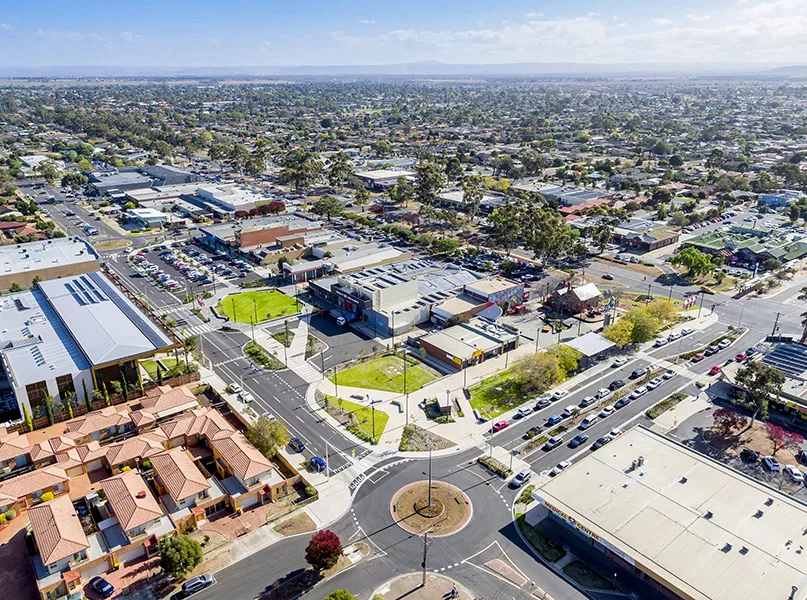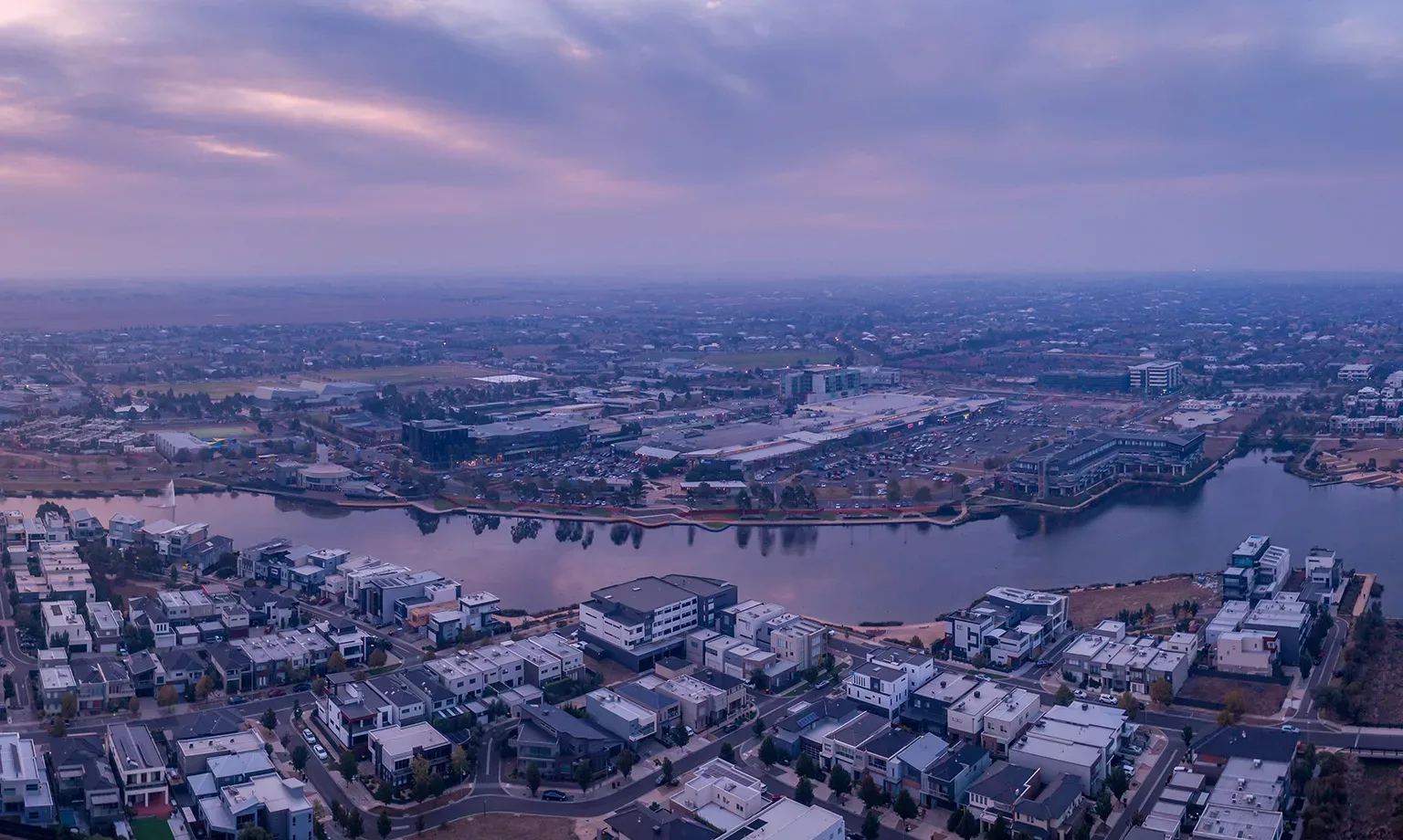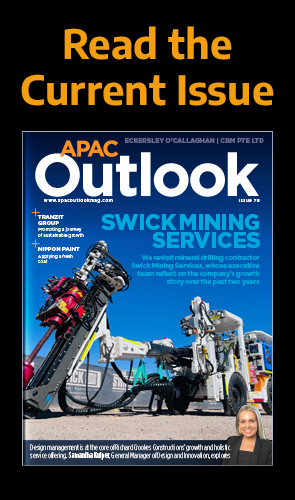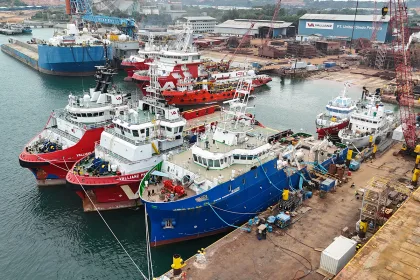THE BACKBONE OF BUSINESS GROWTH
At the forefront of this is Melton City Council, which is eager to seize the untapped opportunities of the municipality.
“It takes a hard-working, dedicated team that is committed to making the City of Melton thrive, as well as careful and continuous planning for the future,” says Roslyn Wai, CEO.
“This involves leveraging ways to accelerate the local economy, alongside strong and clear advocacy for change and engagement with the community.”
The City of Melton is an integral part of Melbourne’s western growth corridor, connected to the state of Victoria’s major freeways and airports, as well as the state’s largest industrial hub and Port of Melbourne.
Significantly, the Western Highway, the second-largest freight carrier of any national highway, runs directly through the city, making it well-positioned to embrace the booming workforce and harness the opportunities that the significant availability of land in the region offers.
Through the dedication and long-term planning of Council, the city’s potential, via its abundant access to Melbourne’s key metropolitan and interstate road networks, including the Western and Calder Freeways and Western Ring Road which links into other key freeways, is being unlocked.
The industrial precincts also boast enviable proximity to major logistics infrastructure such as rail, seaports, and airports, linking business to national and international markets.
“The region is experiencing rapid growth, with many new residential and commercial developments underway, all contributing to the City of Melton and offering an outstanding mix of established and new residential options,” Wai says.
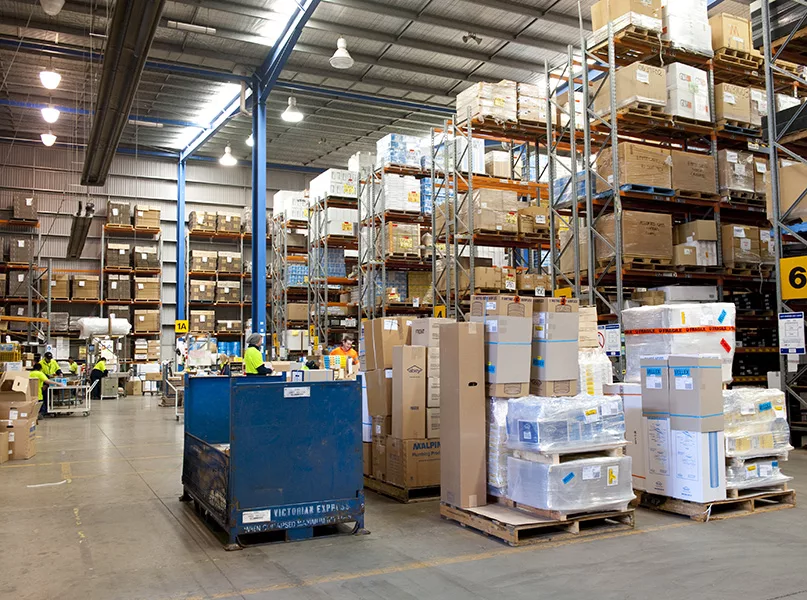
UNLOCKING POTENTIAL
As part of its role, Council strives to truly take hold of the assets at the municipality’s disposal, which is shown in its deliberate and strategic approach to providing services, programmes, and infrastructure to residents within the City of Melton.
“We make sure our Council’s focus is in alignment with the people of our city by re-engaging our community every four years in their vision and aspirations. We are always taking a helicopter view on innovative ways to respond to the challenges of being Australia’s fastest growing area,” Wai emphasises.
With a can-do approach, Council looks at innovative ways to reduce the burden on ratepayers and proactively explores alternative revenue options.
This is evidenced by the Infrastructure and Strategic Investments Reserve that utilises proceeds from a joint venture between the council and Lend-Lease communities in the Atherstone residential development in Cobblebank to fund infrastructure.
Furthermore, Council advocates strongly for state and federal government investment to facilitate the city’s rapid growth and works hard to cater to the needs of the community. This strong relationship with the state and federal governments has resulted in a strong investment pipeline.
Supply chain and logistics hubs, supported by significant parcels of commercial and industrial land in close proximity to freight corridors such as the Western Highway, Calder Highway, and regional rail lines, will open up more than 39,000 new jobs over the next three decades within the Western State Significant Industrial Precinct (SSIP), Victoria’s largest SSIP.
To support the need for more transport investment, the council developed the Moving Melton Transport Prospectus 2022, which details the road, rail, bus, and active transport infrastructure projects required as well as the economic and environmental benefits of each investment.
“We analysed data on population growth, travel patterns, and traffic congestion to identify the transport projects required for our business and residential community. Subsequently, we prepared costings, project designs, traffic projections, diagrams, and renders of what the projects would look like.
“We are laying the strong foundation to build a liveable community with a diverse and vibrant workforce offering,” Wai outlines.
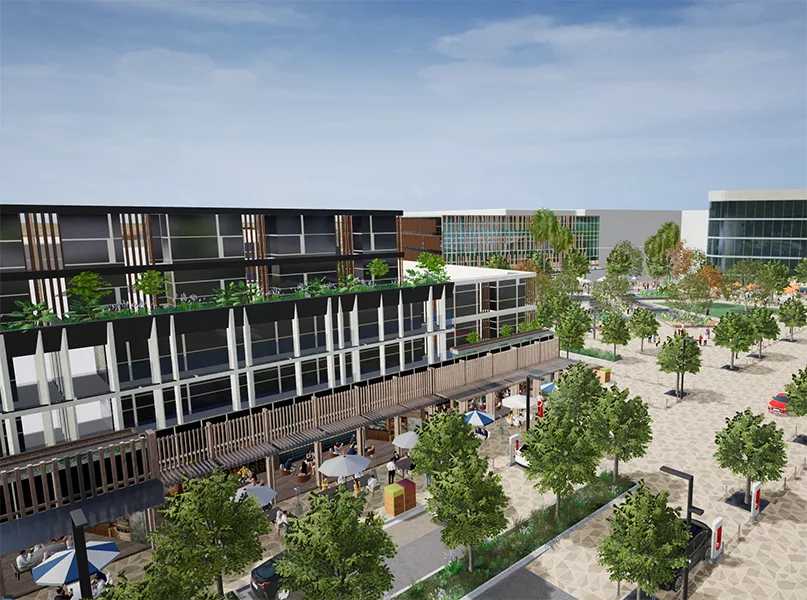
INVESTMENT ATTRACTION
To further boost local employment and capture the value of a diverse workforce, Council has created an Investment Attraction Strategy.
Significantly, the strategy outlines the Council’s long-term objectives, including a target of bringing forth 100,000 additional jobs by 2050, along with an evidence base to bring forward major infrastructure investment.
In the shorter term, the addition of 13,000 new jobs in the next five years bodes well for the Council’s target, resulting in a significant boost in local employment self-sufficiency.
As such, its current main focus is to create more local jobs, providing more employment opportunities closer to home.
“To this extent, our Investment Attraction Strategy is coming to life, and our job target is on track.
“For example, the new Melton Hospital development is progressing well and a new tertiary facility is planned. A Business Case to upgrade the Western Highway is also underway, and we are seeing strong investment in infrastructure that will help unlock employment precincts and catalyse job creation,” Wai says.
The commercial sector is seeing the advantages of doing business in the City of Melton. Significant commercial investments include NewCold’s AUD$147 million investment to double the size of its Asia-Pacific headquarters in Truganina, boasting a storage capacity of 225,000 pallets.
Meanwhile, other commercial investments include Horizon 3023, a 130 hectare (ha) estate on Christies Road, Ravenhall, which continues to attract national and international brands such as Amazon, eStore Logistics, Nike, HelloFresh, Myer, Elders, Scalzo, and Electrolux, establishing some of the most advanced warehouses in Australia.
Stockland’s 260-hectare Melbourne Business Park in Truganina has seen stage one sold out with Makita, Califam, Pelligra, and Universal committing to the site.
Elsewhere, on the Westcourse Industrial Estate, an AUD$300 million, 23 ha development will provide 500 additional jobs during the project’s construction phase.
“With significant land availability and a booming workforce, the outlook for the City of Melton is one that will drive regional and state economic activity for decades to come”
Roslyn Wai, CEO, Melton City Council
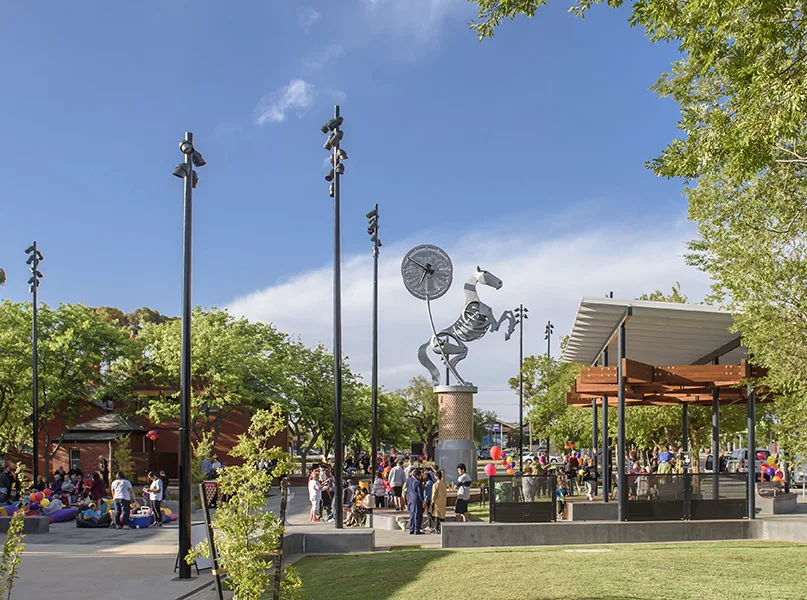
MAJOR INVESTMENT CENTRE
A major precinct set to drive investment and job creation is the Cobblebank Metropolitan Activity Centre (Cobblebank MAC).
“This precinct, south-east of the Melton Township, will be one of the biggest metropolitan activity centres in Melbourne,” Wai highlights.
Activation of the precinct is well underway. The precinct is already served by the Cobblebank Train Station and the Western Business Accelerator and Centre for Excellence (BACE), as well as a retail centre and sporting precinct.
In support of the Cobblebank MAC, Council is investing AUD$10 million to extend a major road that will set the foundation for the Melton Hospital, which is being delivered by the Victorian Government and is set to open in 2029.
The hospital will be instrumental in generating an uplift in local employment opportunities, creating 3,825 ongoing jobs, and providing AUD$300 million in funding for the local economy.
Investment in a private hospital has also commenced, and together with the public hospital and future allied health services, Cobblebank MAC will become a health precinct of state significance.
The Victorian Government has also committed AUD$55 million to build a new tertiary facility in the precinct. The council is investing AUD$20 million for a purpose-built, state-of-the-art community services hub in Cobblebank MAC.
“The Community Services Hub will provide space to accommodate a range of community, allied health, and education services to meet the needs of our growing local community and the broader region. Construction of the hub is expected to start at the end of 2024, with the centre operational in 2026,” Wai explains.
In the longer term, Cobblebank MAC is expected to include a justice district, university campus, civic buildings, and commercial offices, which combined will ultimately support 22,000 jobs.
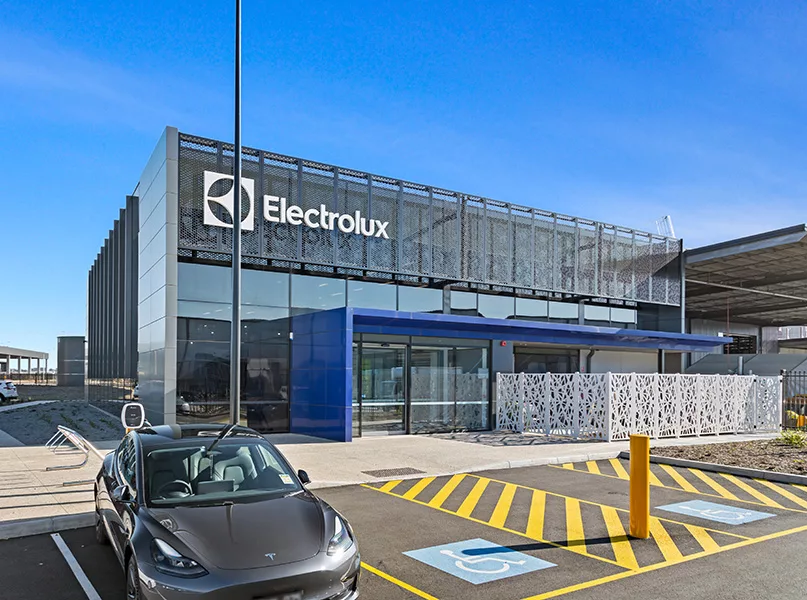
LOOKING TO THE FUTURE
As reflected by the likes of Cobblebank MAC, Council is focused on delivering capital projects in the coming year, working closely with the Victorian and Australian governments to upgrade and deliver new infrastructure that will help attract investment and manage its rapid growth.
Key advocacy priorities include upgrades to the major road network in the short term. In the longer term, priorities include construction of the Outer Metropolitan Ring (road and rail), a transformational project that will connect the outer north, west, and south-west of Melbourne with freight hubs and the employment precinct, not to mention connecting millions of residents in outer Melbourne and creating greater accessibility.
Investment by the Victorian and Australian governments in the Western Intermodal Freight Terminal at Truganina, will deliver freight by train and be the catalyst for thousands of local jobs, with the removal of up to 2,000 daily truck movements from Western Melbourne.
Alongside the planned TAFE facility in Cobblebank, Council is calling for the creation of a new university to educate doctors and allied health specialists for the outer metropolitan areas, regional areas, and provide a workforce for the new Melton public and private hospitals.
Council is developing an Employment and Industrial Strategy to leverage economic uplift from the city’s abundant commercial and industrial land, population growth, and state and national investment.
This strategy will set out a land use vision for the growth and diversification of the City of Melton’s economy and will establish a framework to guide investment in employment and industrial lands to 2036. This will provide certainty to the private sector and community in the long-term and demonstrate preferred uses in employment precincts which will inform investment decisions.
“A new plan for our future, with more jobs, better infrastructure, and investing in young people’s education is at the heart of the council’s bid for further state and government funding.
“We also want to build upon our success in attracting investment in employment hubs, and identify further growth opportunities in the manufacturing and service industries,” says Wai.
